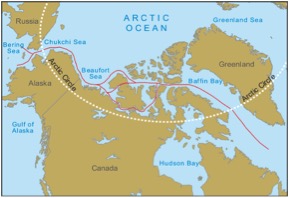Weekly News Wrap: Tuesday, March 29, 2016
Here’s your weekly selection of international law and international relations headlines from around the world:
Africa
- The European Union plans to cut back its funding for Burundi’s lucrative peacekeeping contingent in Somalia to try to force President Pierre Nkurunziza into talks with opponents and away from the brink of ethnic conflict, diplomatic sources said.
- Burundi’s ruling party has accused Rwandan president Paul Kagame of seeking to “export” genocide, as relations between the two countries deteriorate further.
Middle East and Northern Africa
- An Egyptair domestic flight from Alexandria to Cairo was hijacked on Tuesday and landed in Cyprus, state radio said.
- Israel urged its citizens visiting Turkey to leave “as soon as possible” in an upgraded travel advisory on Monday predicting possible follow-up attacks to the March 19 suicide bombing in Istanbul blamed on Islamic State.
- Iran will pursue its development of ballistic missiles despite the U.S. blacklisting of more Iranian companies linked to the program, a senior Revolutionary Guards commander said on Monday.
- Israel’s parliament gave initial approval on Monday to a bill that would allow members to suspend from the legislature colleagues whom they believe have supported Israel’s enemies or have acted against the state.
- Fighting between Islamic State and the al Qaeda-linked Nusra Front spread from Syria into Lebanon’s northern Bekaa Valley region on Monday, a security source and the state news agency said.
Asia
- Japan has conveyed its concern to Moscow over possible Russian plans to build a naval base on a western Pacific island chain, part of which are claimed by Tokyo, a top Japanese government spokesman said on Monday, the latest in a long-running territorial spat.
- Taliban bomb kills at least 70 and injures 400, mostly women and children, outside a public park in eastern Pakistan while families were celebrating Easter; a splinter group of the Pakistani Taliban claimed responsibility and said that it was targeting Christians.
- Taliban fighters have fired explosives at Afghanistan’s parliament compound in Kabul as the country’s top intelligence official and caretaker minister of interior were due to speak, politicians and the Taliban said.
- Laws loosening the limits of Japan’s pacifist constitution on its military took effect on Tuesday as surveys showed the public remained divided over a change that allows Japanese troops to fight overseas for the first time since World War Two.
- U.S. President Barack Obama will meet with South Korean President Park Geun-hye and Japanese Prime Minister Shinzo Abe on Thursday to discuss North Korea’s nuclear program, the White House said on Monday.
Europe
- The journalist Florence Hartmann, a former correspondent for Le Monde, has been jailed at the ICTY war crimes tribunal in The Hague, the body established to try the criminals she devoted her life to exposing.
- German Interior Minister Thomas de Maiziere said he is planning a new law that will require refugees to learn German and integrate into society, or else lose their permanent right of residence.
- Belgian prosecutors on Monday released a man they had charged in connection with last week’s deadly Brussels bombings, saying they did not have enough information to justify holding him.
- Young men in the Molenbeek district of Brussels were sent messages over the weekend calling on them to “make the right choice” and “fight the westerners”.
- Indian Prime Minister Narendra Modi heads to a European Union summit this week, seeking to patch up a four-year diplomatic feud with Italy that has grown toxic enough to threaten New Delhi’s ambitions to become a bigger global player.
Americas
- Retired leader Fidel Castro accused U.S. President Barack Obama of sweet-talking the Cuban people during his visit to the island last week and ignoring the accomplishments of Communist rule, in an opinion piece carried by all state-run media on Monday.
Oceania
- Japanese whalers have shipped home 333 dead whales – including about 200 pregnant cows – prompting Australia to declare anew it is considering legal action over the slaughter.
- The former Australian prime minister Tony Abbott has excused war crimes in comments that the Sri Lankan government’s actions in its civil war were “probably unavoidable”, Tamil refugee advocates have said.
UN/World
- UN Secretary-General Ban Ki-moon regrets a “misunderstanding” over his use of the word “occupation” to describe Morocco’s annexation of Western Sahara, which led to Morocco expelling dozens of US staff, his spokesman has said.
- The United Nations said on Monday it had received new allegations of sexual abuse and exploitation against U.N. peacekeepers from Morocco and Burundi in Central African Republic, including one that involved a 14-year-old girl.
- Syria is willing to take part in an international coalition against terrorism but only if the United States will work with Damascus in a way it has not done so far, the Syrian envoy to Geneva peace talks said on Monday.


 Print This Page
Print This Page



